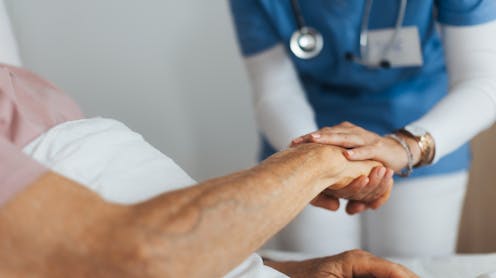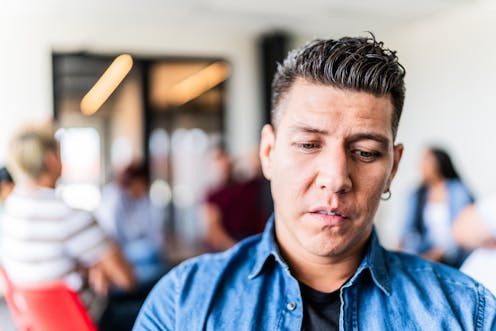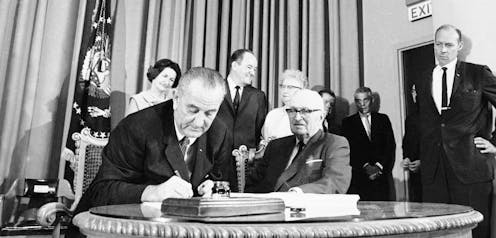Thousands of British women are enduring insomnia, painful sex and life-ruining mental health symptoms because of the ongoing shortages of hormone replacement therapy (HRT), campaigners have warned.
Problems first emerged in April when pharmacy regulators instructed chemists to restrict sales of HRT gels containing the female sex hormone oestrogen. This move allowed pharmacists to offer alternatives where available without the need to contact the patient’s GP, but limited them to dispensing no more than three months’ supply.
Although the guidance remains in place until the end of October, at the start of this month the Government announced that it was to disband the taskforce responsible for tackling HRT shortages because the situation had ‘improved’.
Jo Bryant, 52, an office administrator from Truro in Cornwall, has been struggling to get hold of HRT patch Estradot since being put on it in July. She says: ‘I had some relief, but I still felt bad so in August my GP prescribed me a higher dose, which I have never been able to get, so have remained on the lower dose. I only have a couple of weeks of patches left’
Thousands of British women are enduring insomnia, painful sex and life-ruining mental health symptoms because of the ongoing shortages of hormone replacement therapy (HRT), campaigners have warned
The head of the group, HRT ‘tsar’ Madelaine McTernan, has now returned to her previous role as director-general of the Vaccine Taskforce, overseeing the autumn Covid booster programme.
However, The Mail on Sunday has learnt of at least five other HRT products that are now in short supply.
Dr Leyla Hannbeck, chief executive of the Association of Independent Multiple Pharmacies, says: ‘This is a big problem at the moment. Pharmacists are spending a lot of time on the phone every day trying to sort out medicines for their patients.’
The HRT patches Evorel 50, Evorel Sequi and Estradot are out of stock. Sandrena gel, on a shortage list for the past three months, ‘is starting to come in’ but is still often unavailable, added Dr Hannbeck.
A fifth product said to be suffering ‘inconsistent supply’ is Utrogestan, which contains the hormone progesterone.
A recent poll by menopause support group The Latte Lounge found 36 per cent of women were still struggling to get hold of the treatments that work for them.
Last week, Labour MP Carolyn Harris, who is chairman of the All-Party Parliamentary Group on Menopause, invited her Twitter followers to share their stories of HRT shortages.
Dr Leyla Hannbeck, chief executive of the Association of Independent Multiple Pharmacies, says: ‘This is a big problem at the moment. Pharmacists are spending a lot of time on the phone every day trying to sort out medicines for their patients’
She said: ‘The stock shortage crisis is far from over – I am still hearing from hundreds of desperate women. Some are travelling abroad where products are more freely available and can be bought over the counter, or taking 100-mile round trips in rural areas just to find a pharmacy with stock.
‘Women are self-rationing their HRT to make it last, as they can’t get their next prescriptions. Some are waiting for months and there’s still no sign of the product they need in pharmacies.’
Dr Hannbeck adds: ‘A lot of the raw materials for manufacturing medicine come from the Far East, so when you’ve had lockdowns in China or issues with logistics or transportation or higher costs, that impacts on getting the materials to where they need to be.’
Patients have also told this newspaper of just how widespread the problems still are.
Jo Bryant, 52, an office administrator from Truro in Cornwall, has been struggling to get hold of HRT patch Estradot since being put on it in July. She says: ‘I had some relief, but I still felt bad so in August my GP prescribed me a higher dose, which I have never been able to get, so have remained on the lower dose. I only have a couple of weeks of patches left.’
The divorcee, who lives with her daughter, 21, adds: ‘I have terrible brain fog, and if I could only get the higher dose, it should help. I get my words muddled up, which is so embarrassing, and I can’t concentrate at work.
‘I burst into tears all the time, especially when the chemist says they don’t have my patch.’
Hayley Lambarth, 57, a mother of two who lives near Lowestoft in Suffolk, has used Estradot for four years. Earlier this year it became unavailable and she was prescribed an Estraderm patch, which doesn’t keep her ‘vicious’ hot flushes at bay.
Another said she has been unable to get Estradot patches on the NHS since February. ‘I have had to buy from friends going to Spain. This is completely unsustainable’
She says: ‘We were promised a while ago that the shortages were over, but I still can’t get the product that makes me feel OK.’
Curtain-maker Kara Williams, 54, from Alresford, Hampshire, says she keeps having to switch HRT. She says: ‘Every time I change my treatment it takes my body about three weeks to get used to it, and the old pain and symptoms – hot flushes and sleeplessness and joint pains, like needles in my bones – start to come back.
‘I have one month’s worth of Sandrena left and then I’ll be going around all the pharmacies again. I’m dreading it.’
Many women have written on social media about similar stress. One tells how not getting her supply of Estradot ‘is taking its toll’. She adds: ‘I felt suicidal before taking it and can’t imagine what will happen if I don’t get my supply next time.’ She also suffers from vaginal atrophy, in which the vagina wall can become thin and dry due to the lack of oestrogen, and sex can be uncomfortable.
Other women have splashed out on private medication. One said: ‘No Lenzetto for five months from my own pharmacy so I have paid for it [at £25 a month] from a private practice. I don’t know how they can get it while my usual prescription cannot be fulfilled.’
Another said she has been unable to get Estradot patches on the NHS since February. ‘I have had to buy from friends going to Spain. This is completely unsustainable.’
Carolyn Harris once admitted that during the menopause she ‘got close to putting my car in front of a lorry’ and has pointed out the average age of women experienceing the menopause is 51, while the biggest risk of suicide in women is between 50 and 54. She is now planning to take the evidence of the ongoing shortage to the Department of Health and Social Care.
Source: dailymail.co.uk

















 English (United States) ·
English (United States) ·